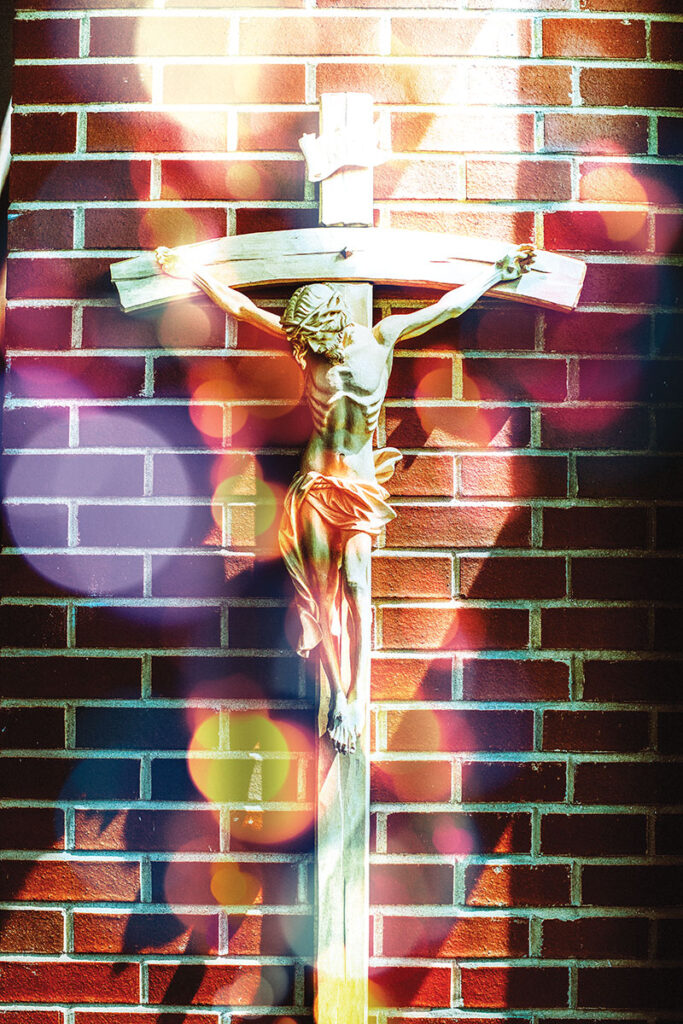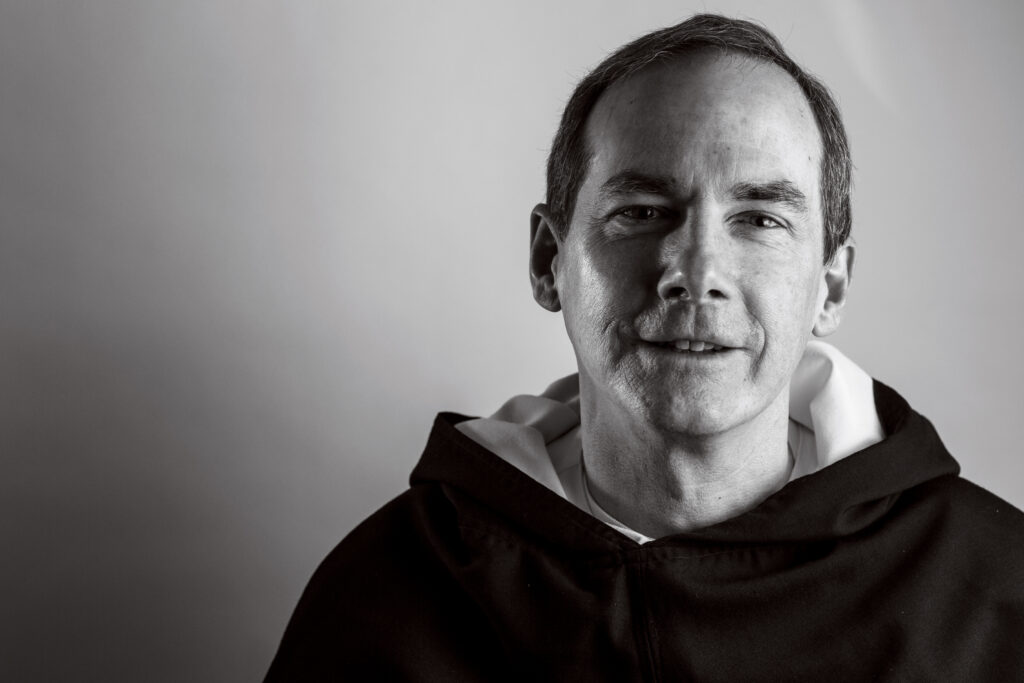The Last Word: Grace
By Rev. Joseph J. Guido, O.P.
“Are you a Catholic priest?” the caller asked.
“I am,” I said.
“My name is Seth,” he said. “I was tripping on acid last night and Jesus appeared to me and said that I should talk to a Catholic priest as soon as possible. So can you see me right now, please?” His speech was urgent, feverish even, and he hardly paused to catch his breath. Worried that he might still be under the influence of the drug or that it had triggered an incipient psychosis, I told him to meet me at my office.
He was waiting for me when I arrived. Tall, fit, and broad shouldered, he had a mop of thick, dark hair and a disheveled look. No sooner had we sat down than he began talking, assuring me that he had never used drugs before, “just beer and shots, you know, like everyone else,” but was eager to know, “Why did Jesus appear to me?” I wanted the answer as well, especially after he told me that he was not Christian and, in fact, had but a passing acquaintance with religion of any kind.

We spoke for the better part of two hours and as we did, his speech slowed, and he seemed more at ease. So was I. But it also became apparent that Seth had been living multiple lives.
On the one hand, he favored the confident, jocular swagger of a frat boy interested in girls, sports, and the upcoming weekend. Less obviously, he was a student in the Honors Program, a double major in English and American studies, and a sensitive soul who always had time to listen to the sad story a forsaken girl or a rueful buddy felt compelled to tell.
Then there was the fact that when he was 13, he came home from school one day to find his mother dead from an overdose. He never shed a tear, not then and not since, and had hardly ever talked about it with anyone, even family members, until now.
Seth and I met weekly for the better part of a year. The work was hard, painfully so. It was not only the buried grief that had to be unearthed but the welter of emotions that attended life in a family riven by secrets and bound by an unspoken agreement never to acknowledge their shared desperation. But Seth persevered and over time, his anguish dissipated and his capacity for joy and hope increased.
He also became particularly attached to an older priest, a professor of literature, who modeled for him the possibility of twinning a rigorous intellectual life with a dedicated life of faith. This led to Seth’s decision to become Catholic, and at his baptism and confirmation he broke down and cried, feeling, perhaps for the first time, the lifting of the weight of his childhood and the light touch of redemption.
After graduation, he went on to graduate school, married, and became a well-known author and commentator on contemporary culture. Sadly, while still in his 30s, Seth died suddenly and unexpectedly from a massive heart attack.
The ancient Greek word psyche encompasses mind, soul, and spirit suggesting the intimate relationship between one’s mental and spiritual life, and therapeuein, translated as therapy, refers to the healing ministrations of a priest. Together they underscore what we are apt to forget, namely, that healing is an art exercised on behalf of the whole person rather than the application of a specific remedy to a discreet malady. This poses a challenge both to those who would dismiss the spiritual as a mere efflorescence of the mind and to those who unduly spiritualize suffering in an unwitting denial of the incarnational character of grace.
Herein may be the answer to Seth’s question, “Why did Jesus appear to me?”
In the immediate context, the hallucination was a product of the drug; moreover, Jesus is a cultural artifact even for the non-believer. But finally, it happened because Seth needed to be healed and made whole, to begin a journey as necessary as it was improbable. It is a singular mark of Divine Grace to be forever bent in the direction of human need with the sole purpose of healing and redeeming, employing whatever it deems necessary, be it noble or base, and this for no other reason than love.

Rev. Joseph J. Guido, O.P. is an assistant professor of psychology, senior staff psychologist in the Personal Counseling Center, and prior of the Priory of St. Thomas Aquinas on PC’s campus.





